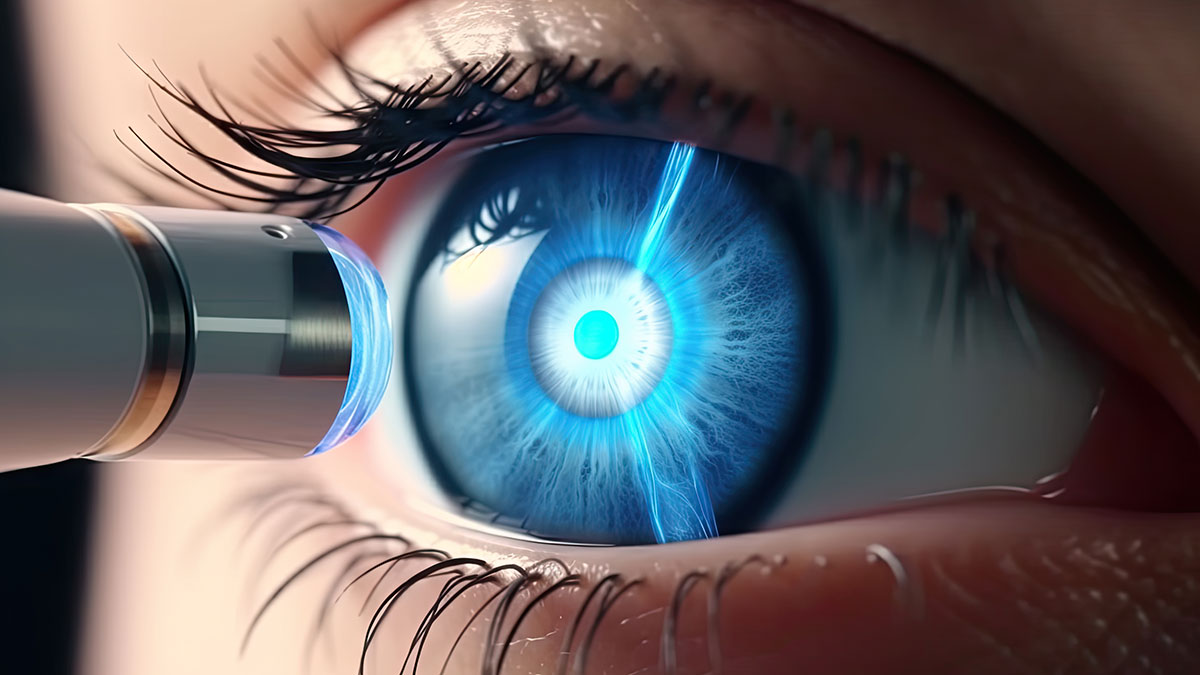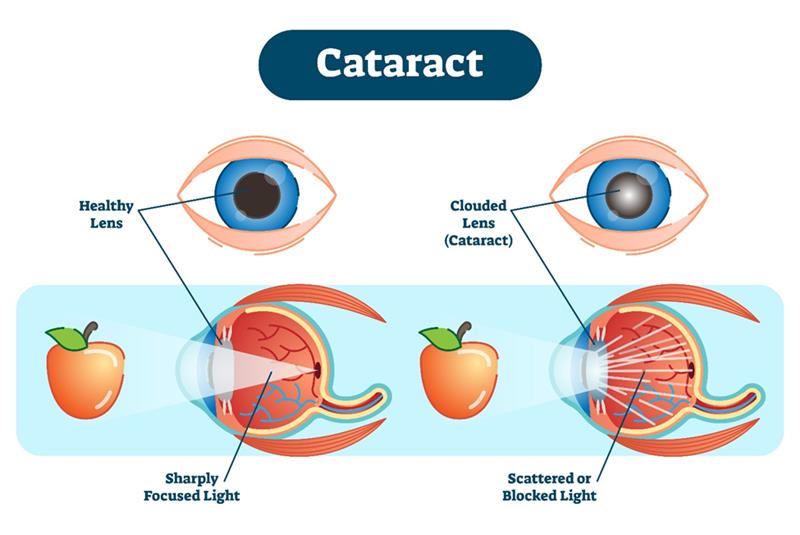Diagnosis & Co-Management
Cataracts
Call Us
Hours
Location

Contact Us To Schedule Your Appointment
Cataract Diagnosis & Co-Management
Cataracts are a prevalent eye condition that affects many people as they age. At the Eyecare Center of Ken Caryl in Ken Caryl, CO, our eye doctors can diagnose cataracts, recommend treatments to prevent vision loss, and, if necessary, refer you to a trusted ophthalmologist while offering pre- and post-operative care.
What are cataracts?
A cataract is a clouding that forms in the lens of the eye. This occurs when proteins in the eye break down and clump together, obstructing light from passing through the eye’s lens. Over time, the cataract worsens, causing more cloudiness. Although cataracts are primarily an age-related condition, they can also develop due to trauma or certain medical conditions such as diabetes.

Risk factors for cataracts
Age is the most significant risk factor for cataracts, with the risk increasing substantially for those aged 60 and older. If you are over 55, your doctor may require a dilated eye exam to test for cataracts.
Other risk factors include:
- A family history of cataracts
- Certain medical conditions like diabetes and glaucoma
- Smoking
- Previous eye injury or surgery
- Specific medications, such as steroids
- Poor diet and nutritional deficiencies, including a lack of antioxidants
- Extended exposure to UV rays without adequate eye protection
Symptoms of cataracts
Cataracts typically develop slowly over several years. Symptoms of cataracts include blurry vision, light sensitivity, night vision difficulties, seeing halos around lights, reduced color intensity, and frequent eyeglass prescription changes. People with cataracts may also struggle to read the small print on menus or other materials.
Diagnosing cataracts
At the Eyecare Center of Ken Caryl in Ken Caryl, CO, your eye doctor can diagnose cataracts and various other eye diseases during a comprehensive eye exam. Your optometrist will conduct several tests to evaluate your overall eye health, including a slit lamp exam, which uses a low-power microscope to detect cataract formation and other disease signs.
Treatment for cataracts
Cataract treatment depends on the level of visual impairment they cause. If cataracts minimally affect your vision, no treatment may be necessary. Our doctor may advise monitoring increased symptoms and recommend regular comprehensive eye exams to assess worsening conditions. In some cases, adjusting your eyeglass and contact lens prescription may temporarily improve your vision.
One of the most common treatments is cataract surgery, which involves removing the cloudy lens and replacing it with an intraocular lens (IOL). The decision to undergo surgery depends on how your vision impacts your safety, independence, driving, and ability to read computer screens or books or watch television. If cataracts significantly affect your everyday tasks, it may be time to have cataract surgery.
Our eye doctor will determine your readiness for surgery and recommend a trusted ophthalmologist. We will discuss different options for surgery and IOL selection to help you decide what’s right for you, taking into account your unique needs and lifestyle.
After cataract surgery, your vision should improve within days or weeks. Your eye doctor at the Eyecare Center of Ken Caryl will schedule follow-up visits to monitor your progress and recovery.
Cataract prevention
Although cataract prevention is not guaranteed, you can reduce your risk by wearing sunglasses with adequate UV protection outdoors, maintaining a diet rich in antioxidants, quitting smoking if applicable, and engaging in regular exercise. You can also lower your risk by managing any preexisting conditions like diabetes and using protective eyewear when engaging in sports or other potentially dangerous activities.
